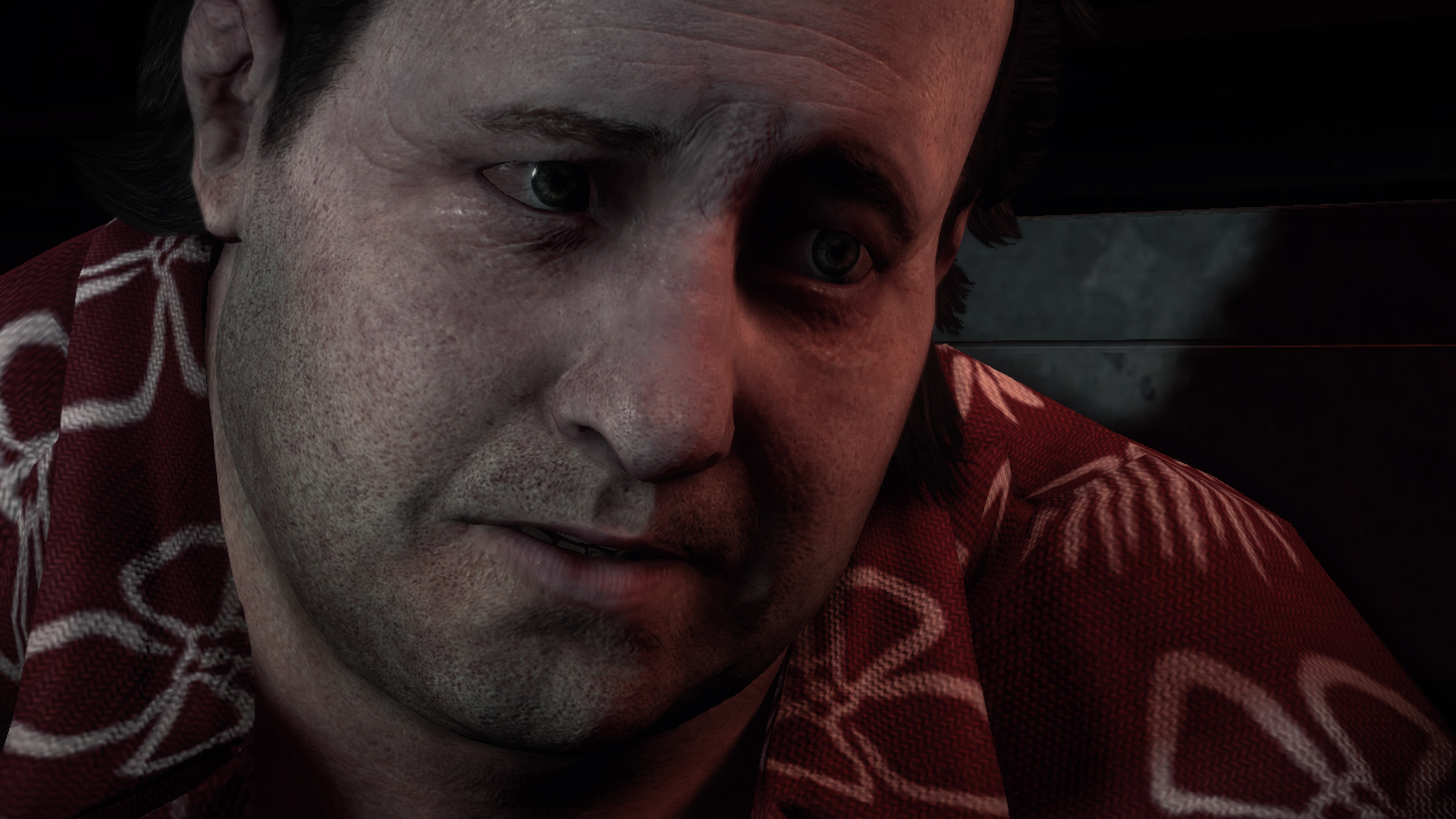 |
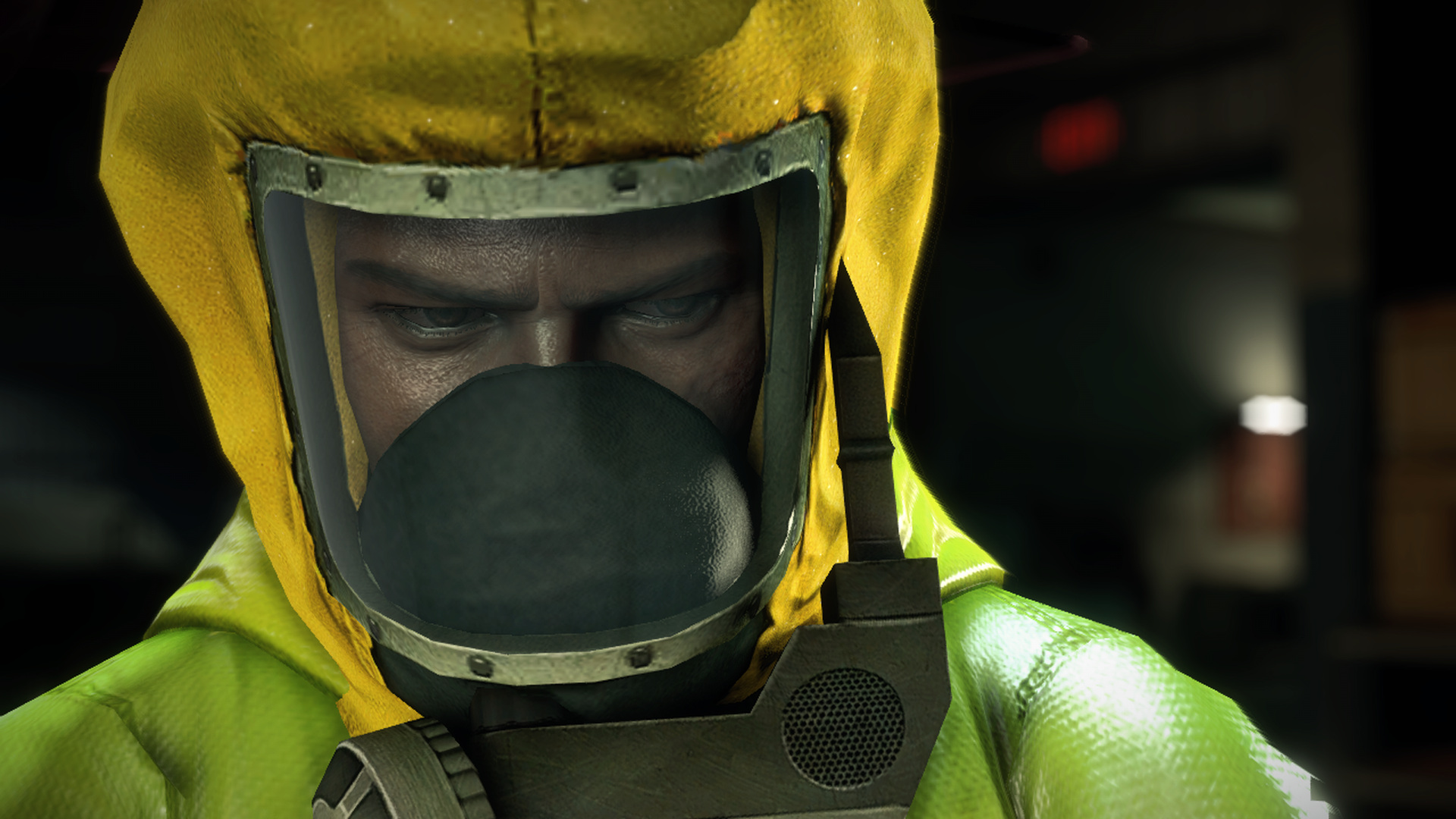 |
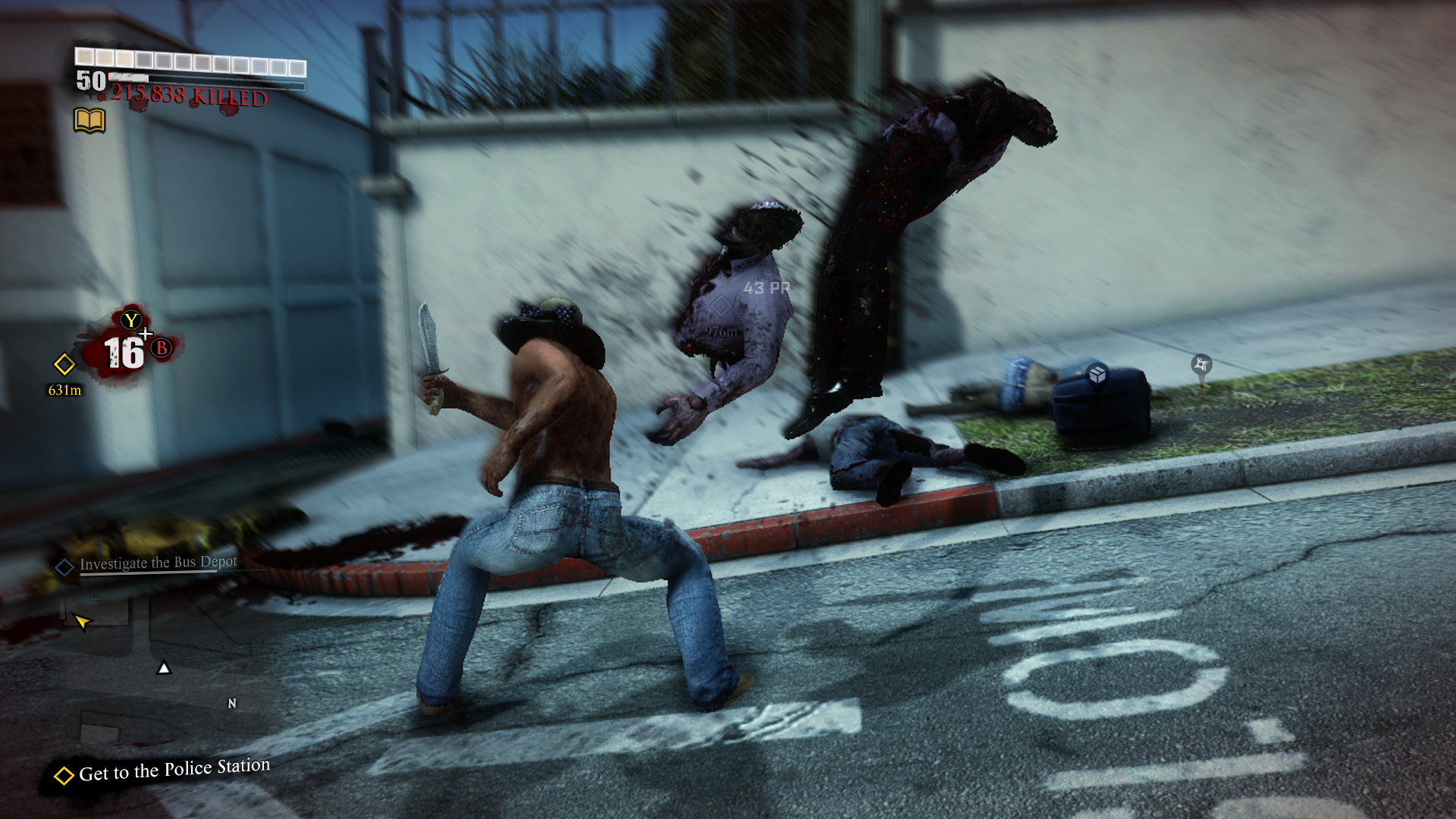 |
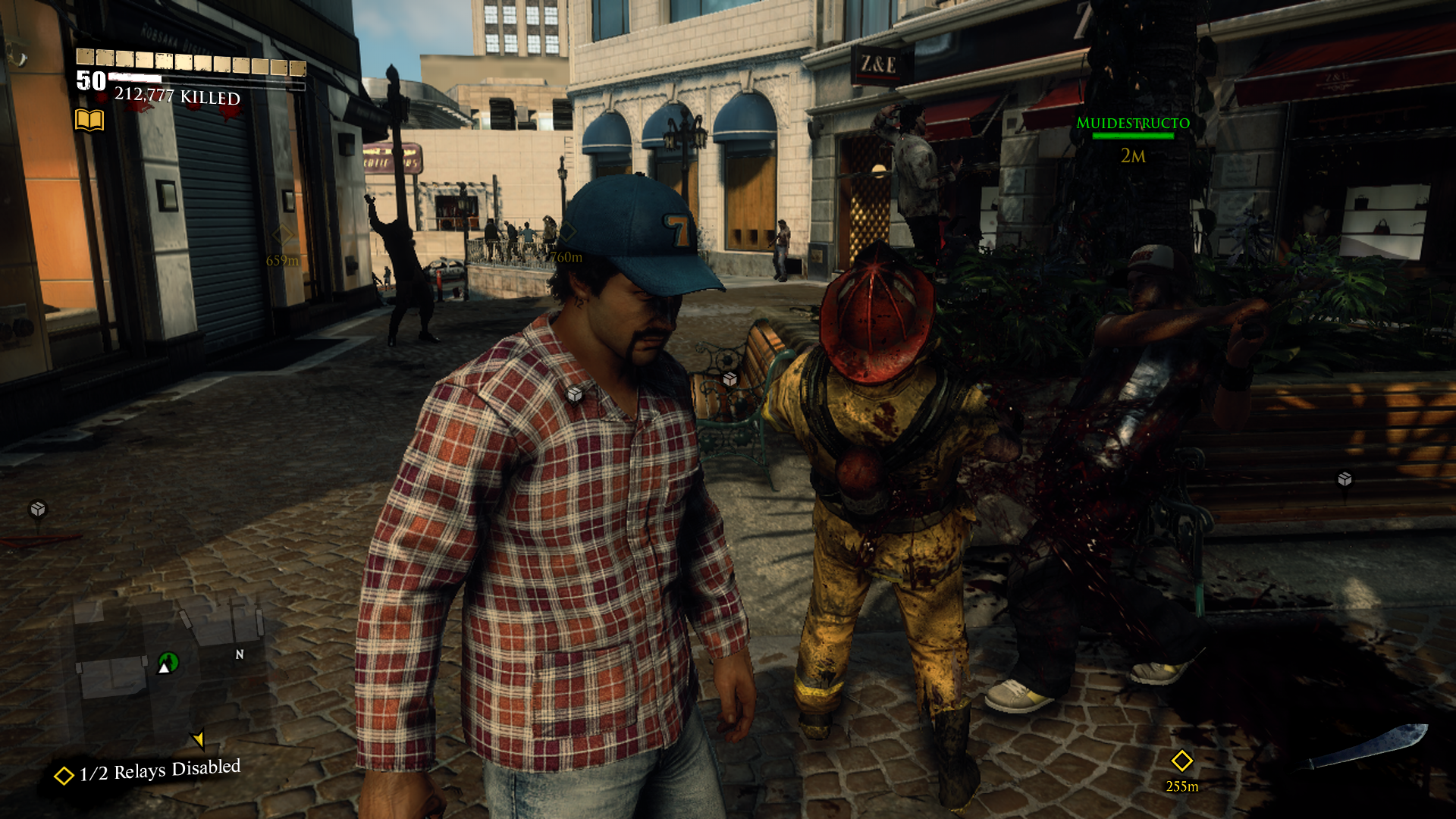 |
|
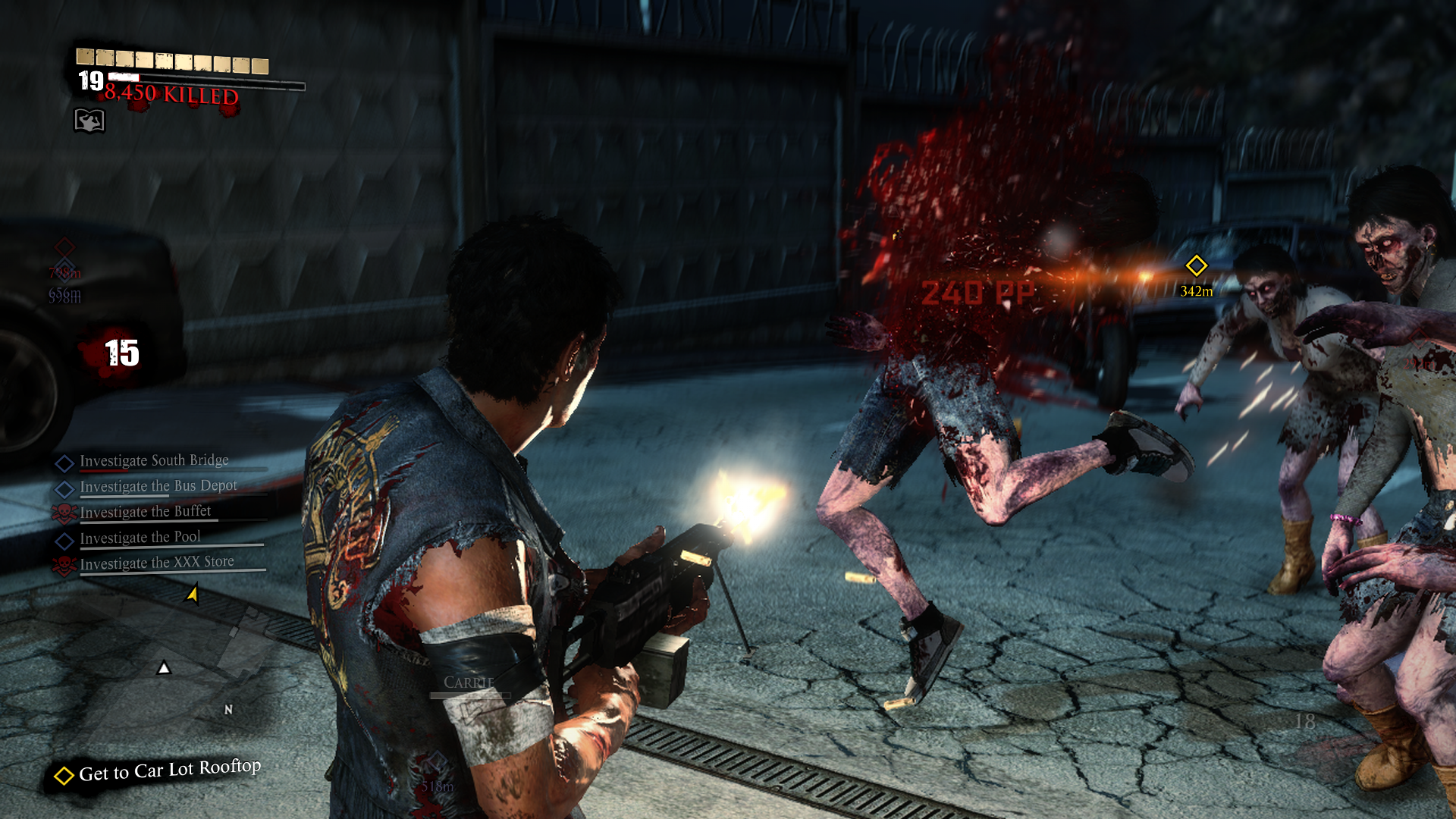
|
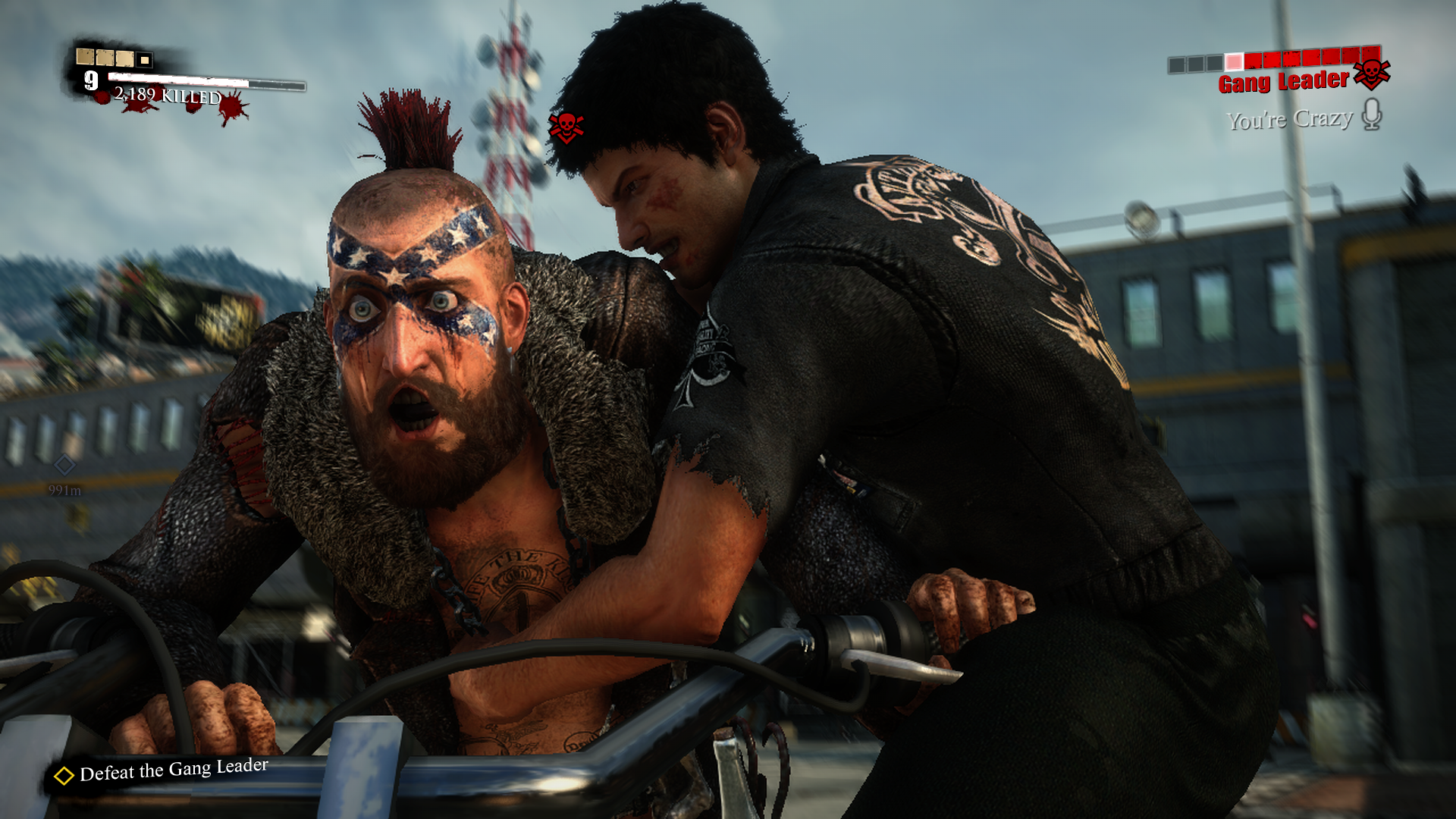 |
|
Left
Unsaid
|
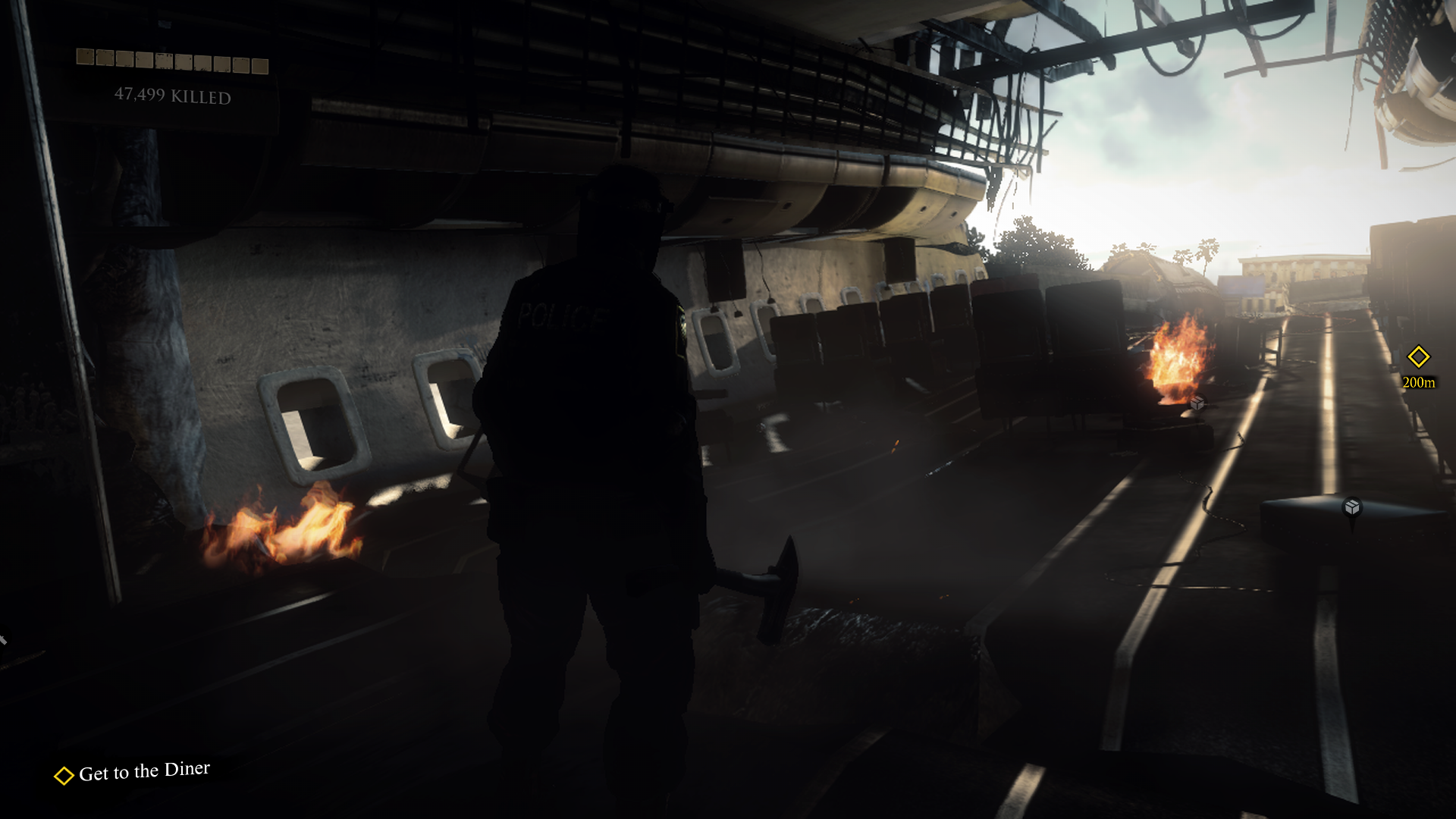 |
| Critics
also leave out the game's terrifying opening scene, where you barely evade
a jumbo jet, watching it plow through cars as it crash lands and skids across
the highway. It completely comes out of nowhere, and you're caught off-guard
(unless you saw it already in the game's "attract sequence").
To make matters worse, zombies pour out of the damn thing and you have no
choice but to walk through the wreckage if you want to get anywhere. Traveling
up shit creek without a paddle has always been part of the Dead Rising journey
through Hell, and in this game is is no different.
There is a sort of comedic relief amongst the chaos, but it drowns in the
hoplessness of the masses being "chipped" and decieved; an unfortunate
future in the game that echos a real-life truth and prophecy many deny. |
|
This
is all conveyed through tons of in-game cutscenes that use next-gen camera
effects and angles. Below the surface of these
grim themes are also nuanced comedic undertones.
These nuanced comedic undertones are one of the things that have divided
many in regards to the overall feel of the game. Some take the ability
to cross-dress, the Bingo-Butt Buffet Boss, and the body-builder boss
in this game as proof that it's more humorous than it is serious. To their
credit, it is true that the series has always had a sort of humorous lean
in some aspects, from riding tricycles to using unconventional weapons
such as potted plants. Others say the opposite, citing that while these
instances of comedy exist, they are not enough to render the game a joke.
On the contrary, these seemingly-comedic character designs and themes
are more like portrayals of American extremism and SJWs. We
need not look any further than Carlito's dialogue in the first game of
the series.
|
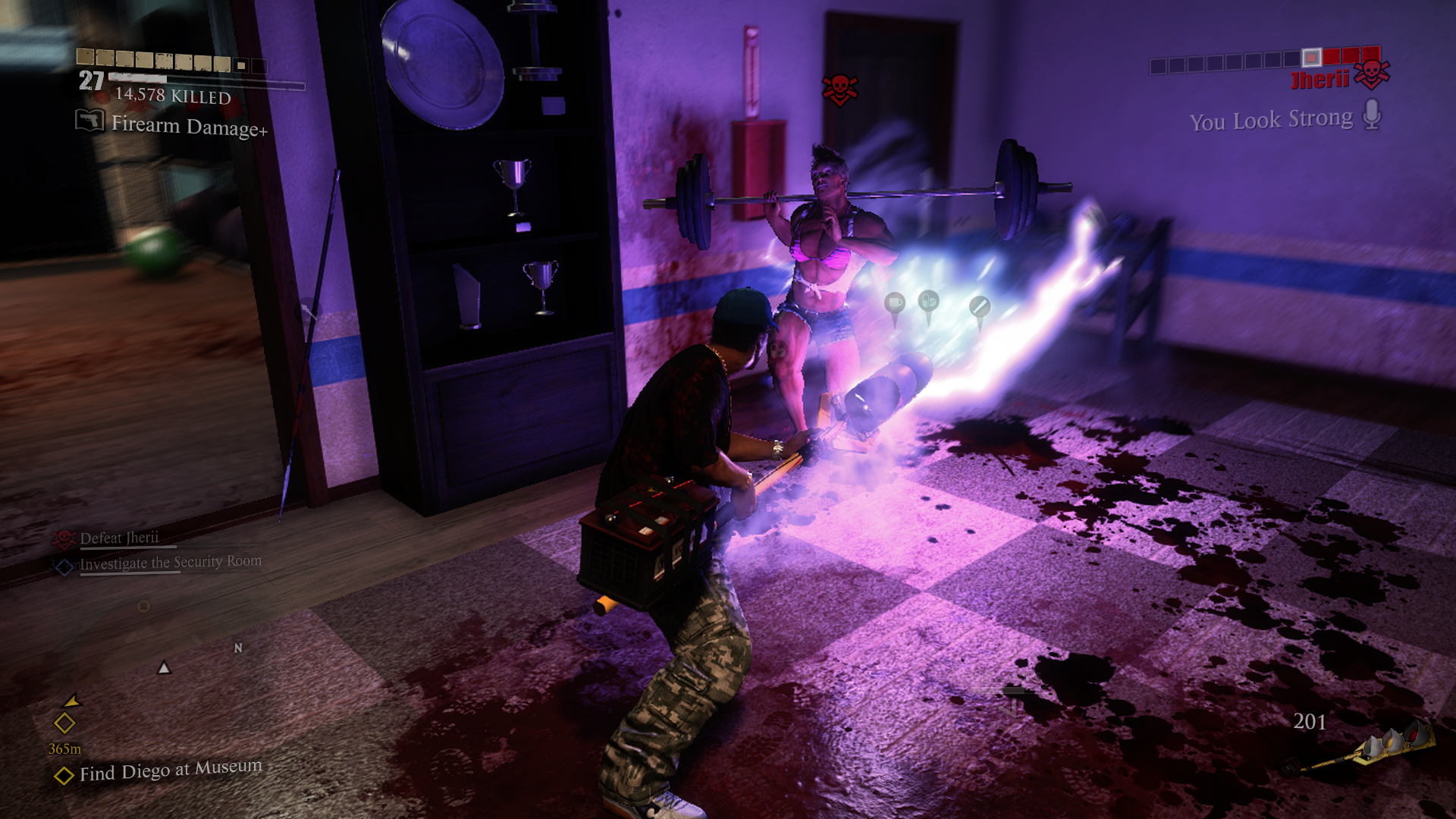 |
| It
was essentially American extremism as viewed through the eyes of the game's
Japanese producers, and DR3 extended that.
In fact, if we take a closer look at DR3's plot and setting, we
uncover more than just the ridiculousness of American extremism like SJWs.
There are several different ways through the game which all result in corresponding
endings and outcomes, but the plot essentially reveals itself about 75%
of the way through. Although the most comprehensive ending reveals that
a researcher was behind the whole thing, it was largely made possible by
politics and absolute control of the public. As briefly touched-on earlier,
this highly echoes real life America with parallells of carefully-controlled
big-media brainwashing of the masses into accepting "change" that
strips them of all that makes them human (religion, beliefs, and values).
The end result, of course, is absolute control through big government and
centralization of power. |
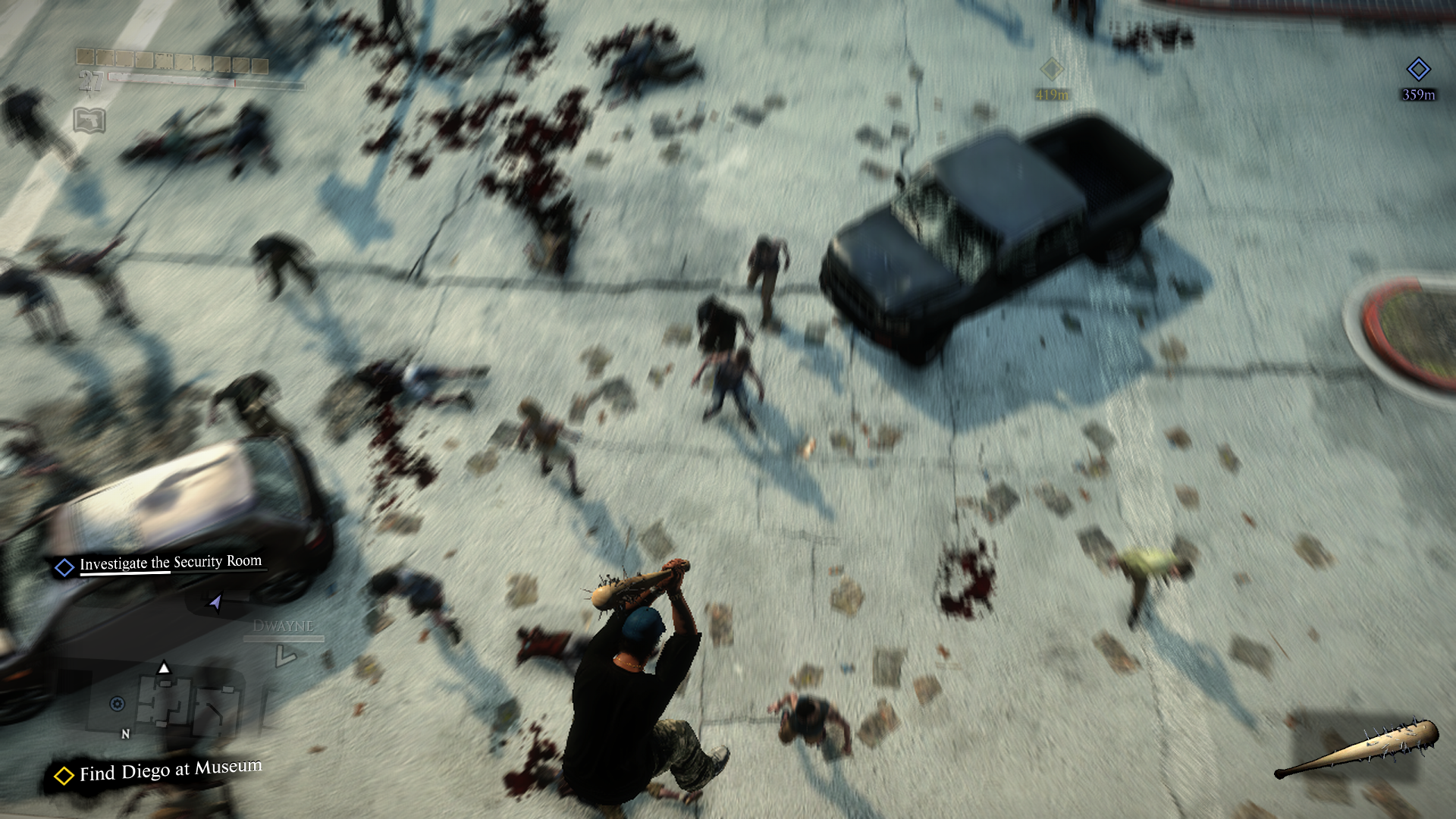 |
|
Of
course, critics also don't talk about how rich this game is in content
because the haven't played it enough to know. You can play through the
game several times and still not get everything there is to get. There
is always something new to do each time you play through the game, and
progress actually spans across the game with each character. For example,
destroying something with one character shows it as destroyed when you
go through the game again with another character. It's like the Zapping
System in all-time Capcom great, Resident Evil 2. Sometimes, it's
even to the point where you're amazed at just how much stays destroyed
and/or ruined from previous plays; I've ran across vehicles I totalled
weeks ago! It's impressive to see, and it brings back memories of past
battles; something I haven't experienced in the brawler genre before.
Audio is another strong point of the game, and another thing missing from
most reviews.
|
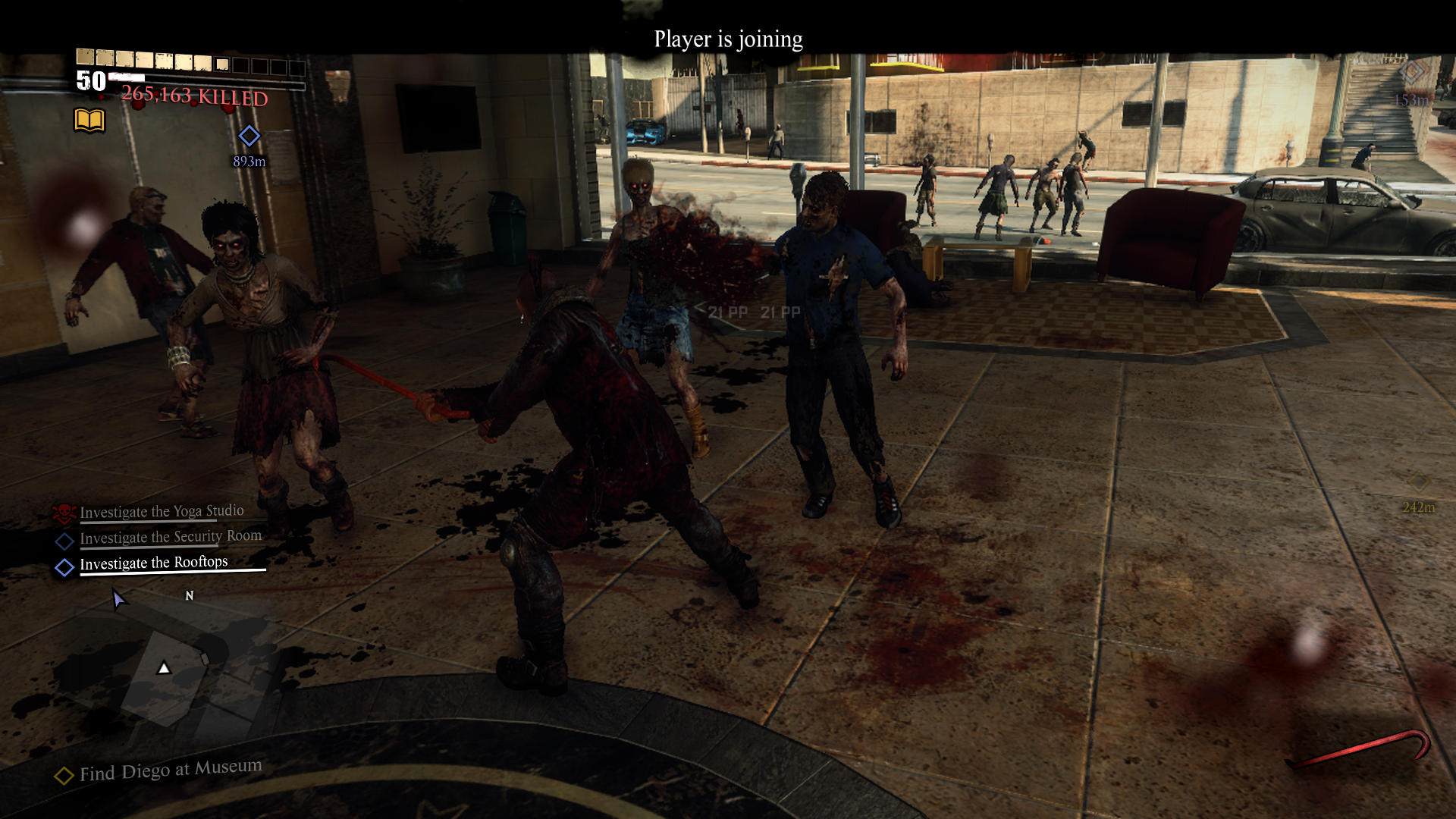 |
| The music and sound
effects in DR3AE are a mix of old and new. Picking up Frank West
collectible statues emits an old notification sound from the first DR,
while a handful of other familair sound effects come out here and there.
Completely revamped are the impact sounds. Punches, kicks, slams, and stomps
all connect with thundering impact that pounds hard-enough to reduce a building
to rubble. The coolest effects are when you do a power moves; perfect timing
of a profoundly-sinister dubstep clip drops with a dramatic camera highlight
of the move. These dubstep pieces are heard all throughout the game, and
whether you're a fan of the genre or not, they arguably set the tone of
the game's dark, grim atmosphere. Combined with the dramatic camera angles,
the essence of an post-apocalyptic Los Angeles couldn't have been captured
better. Defining OST pieces like its menacing mode select screen and menu
music will replay in your brain whenever you see the game. |
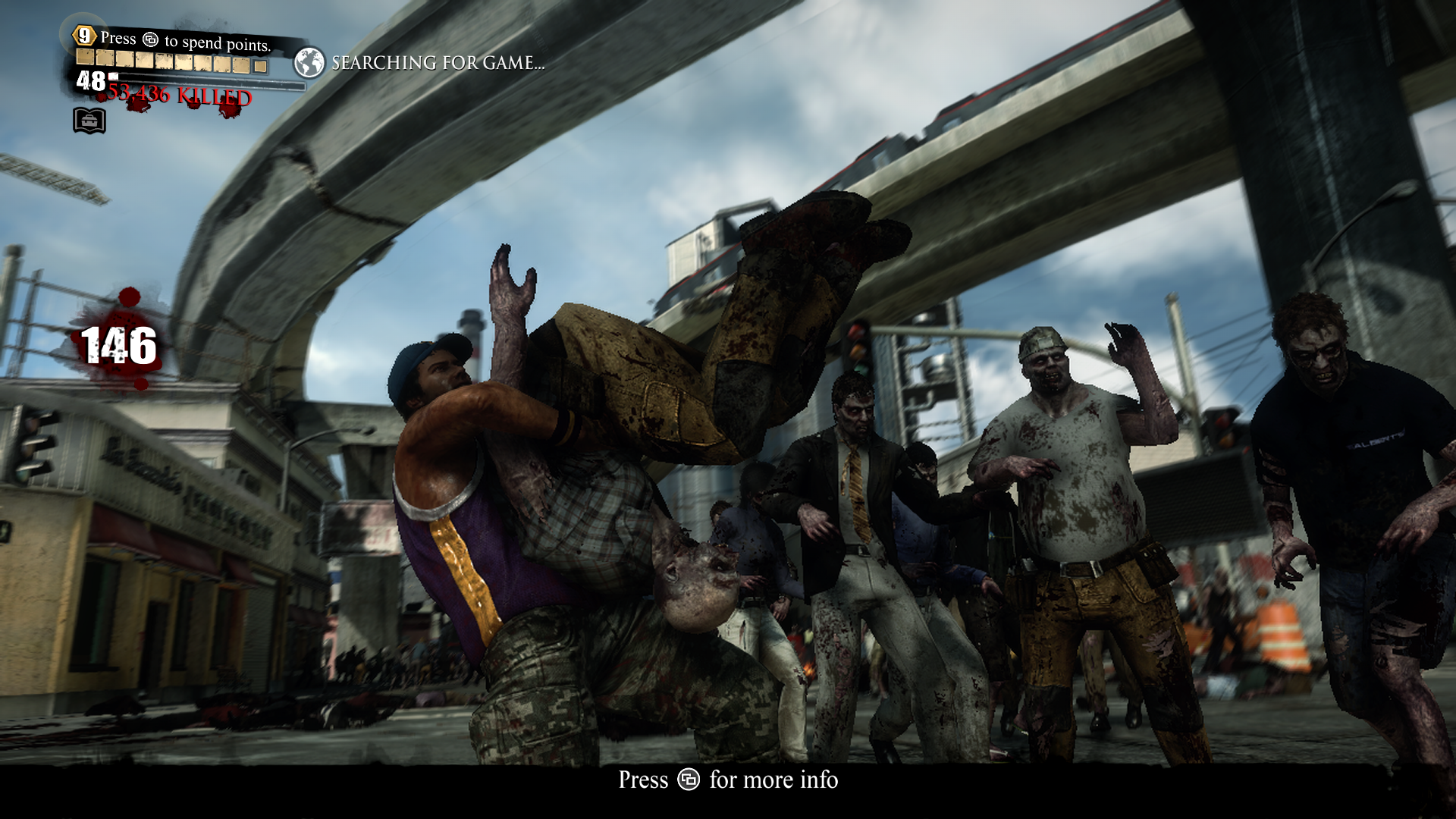 |
|
Dead Rising 3 takes place around 10 years after Dead Rising
a Dead Rising 2, picking up nicely where those two left off. Despite
its reputation of apparently being a slapstick comedy zombie simulator,
critics bashed Dead Rising 3 for its serious tone upon release.
The direction of the game was natural, though. The series has evolved,
and with that has come not only progression of the story, but broadening
of the story. This is like when you see critics bash the new work of a
band or group because it's "not as good as their old stuff".
The series has broadened its scope since its infancy; it's not just a
local zombie outbreak spurred by revenge, but a national state of emergency
with nefarious politics and terrorism at the core. Billboards around Los
Perdidos are a constant reminder to "Get Chipped" (and what
happens if you don't), which is a subtle glimpse into an uncertain future
most Americans don't even see they're supporting. Too real, perhaps?
|
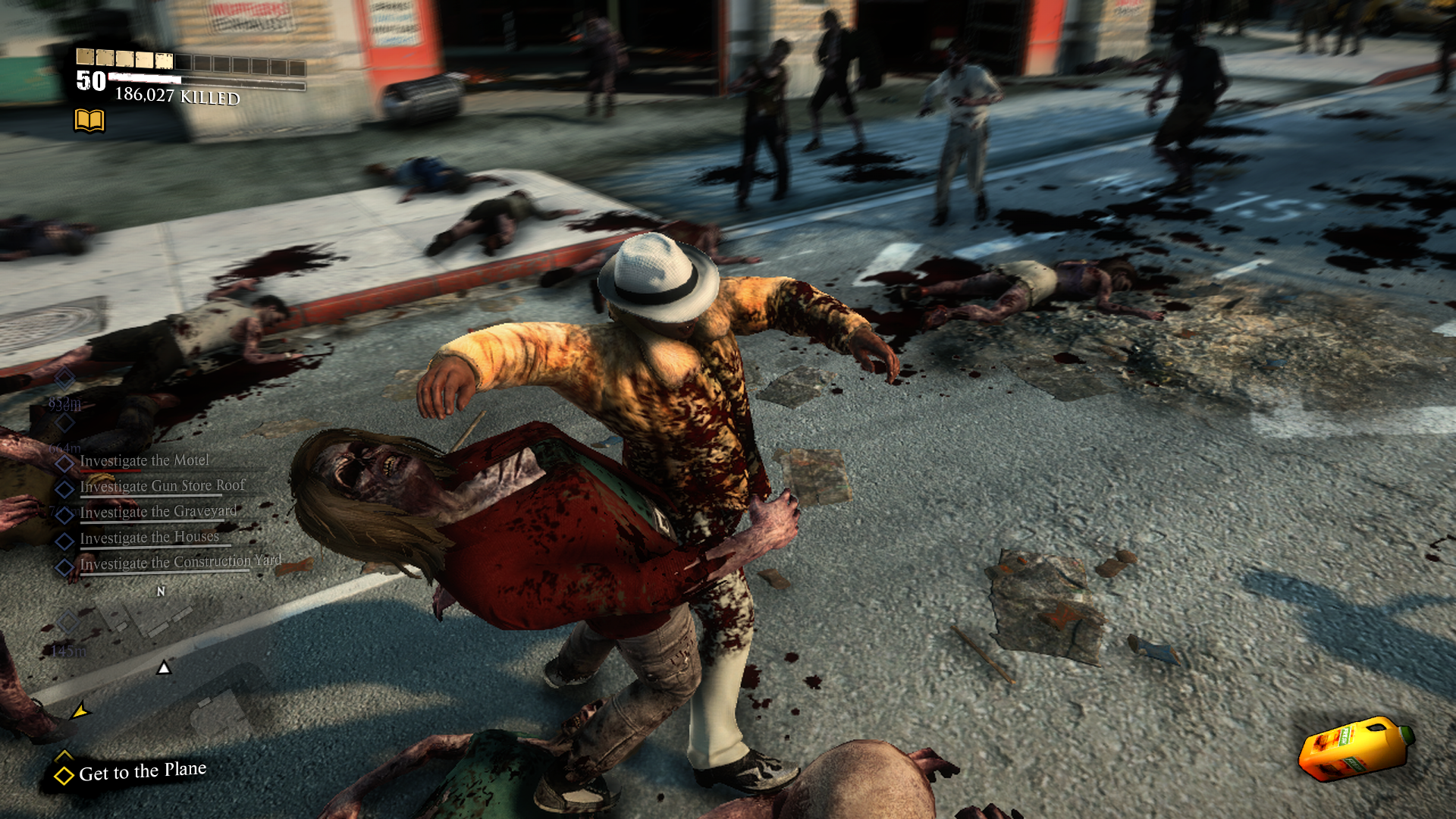 |
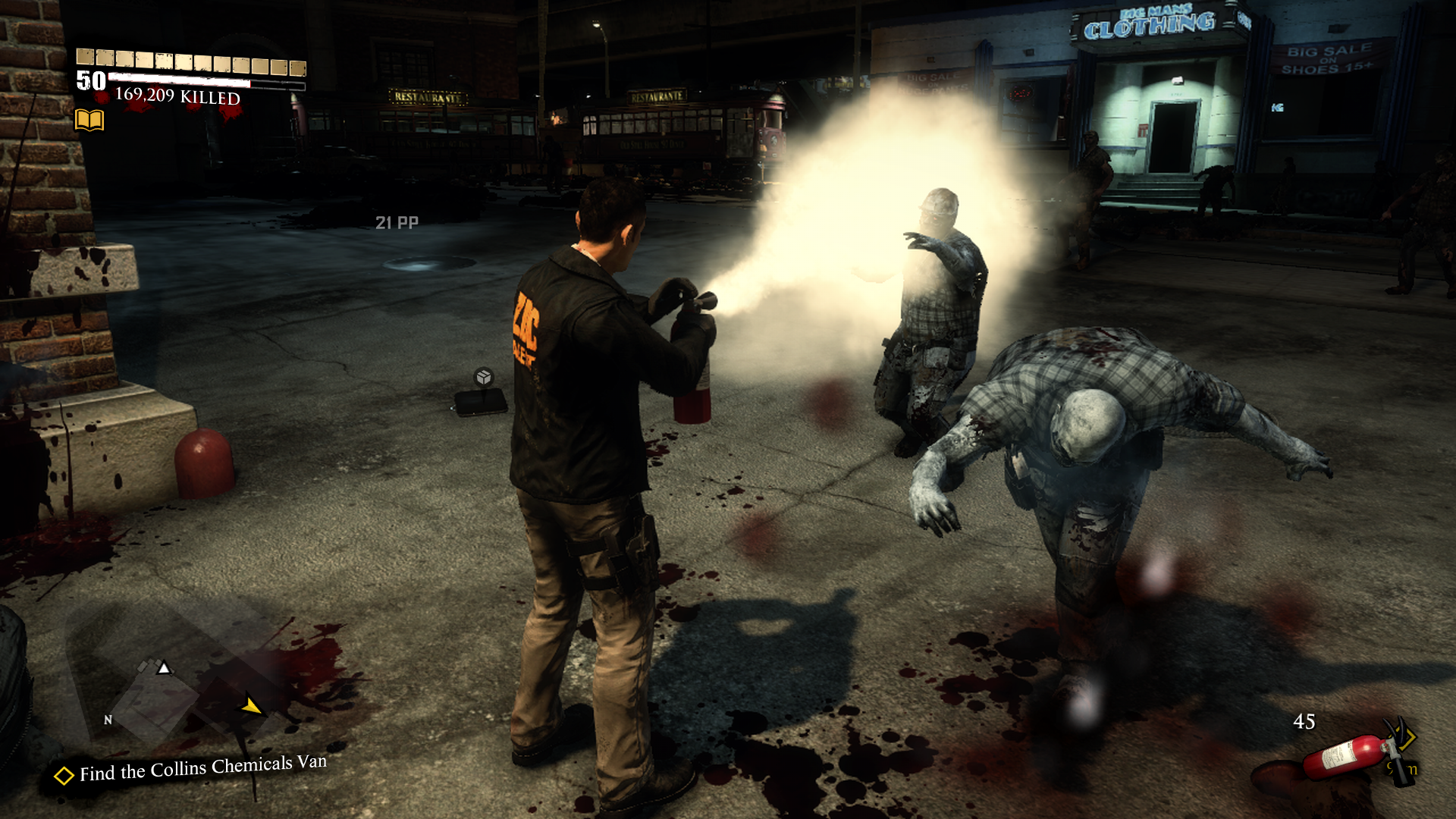 |
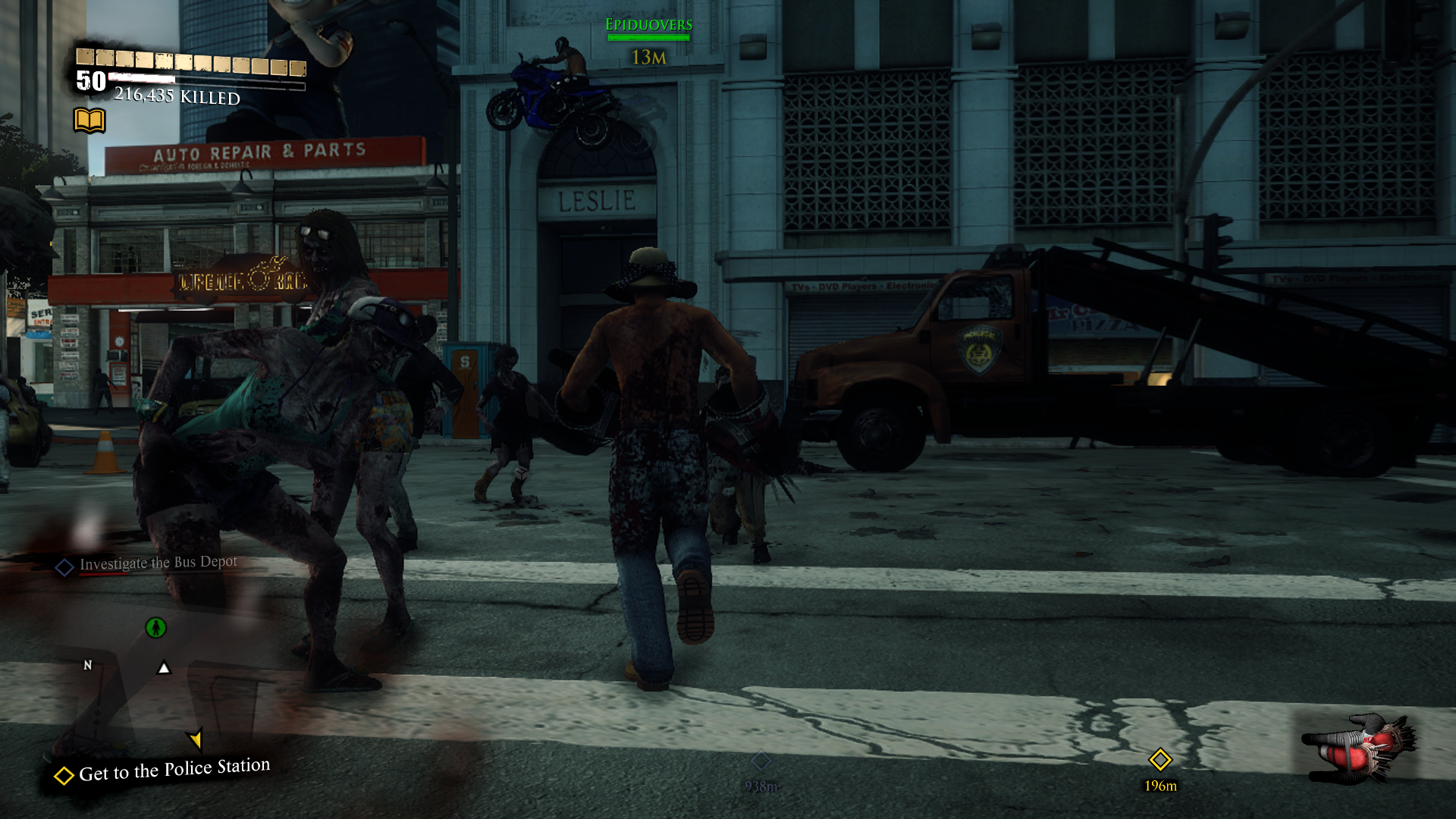 |
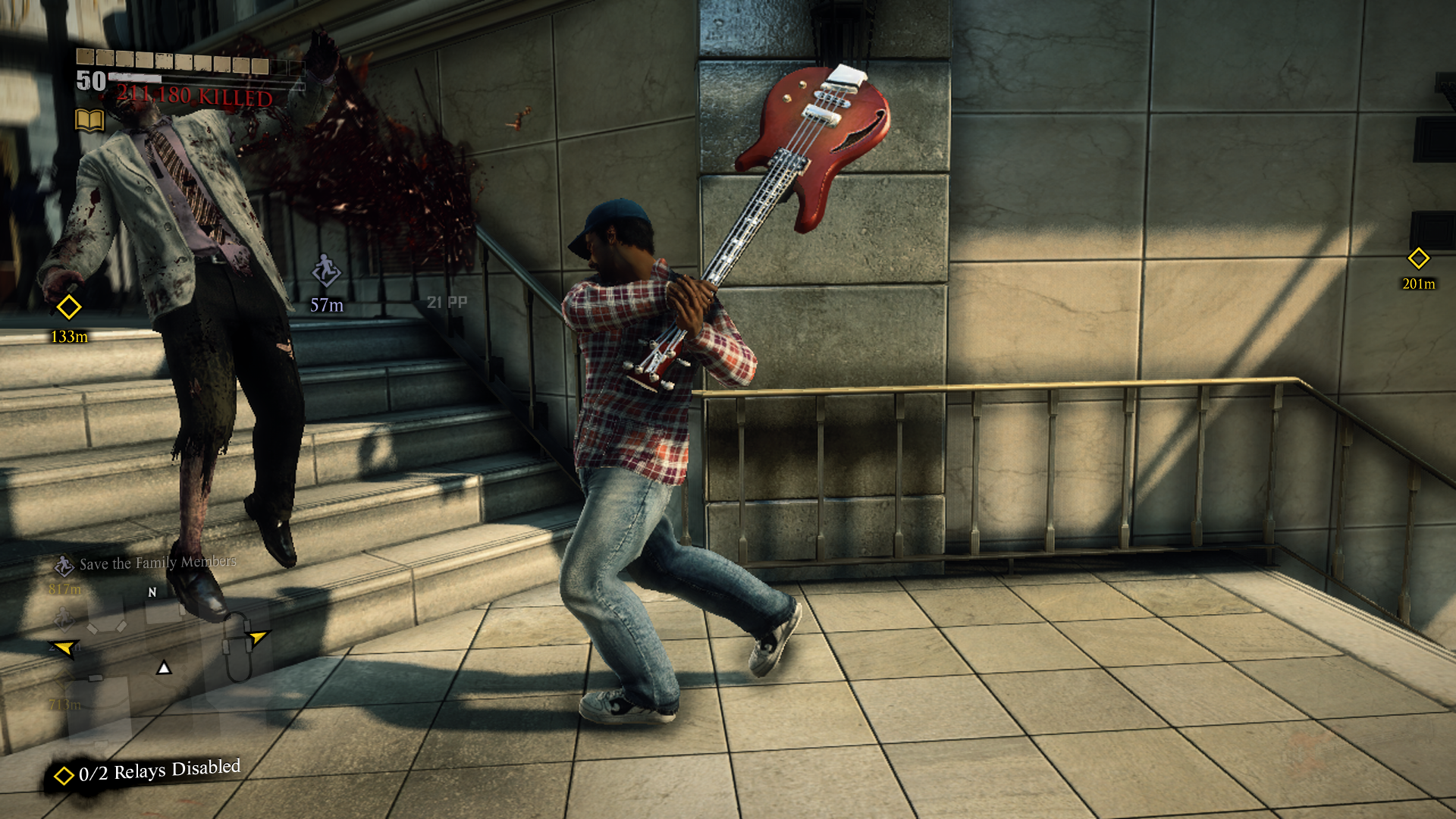 |
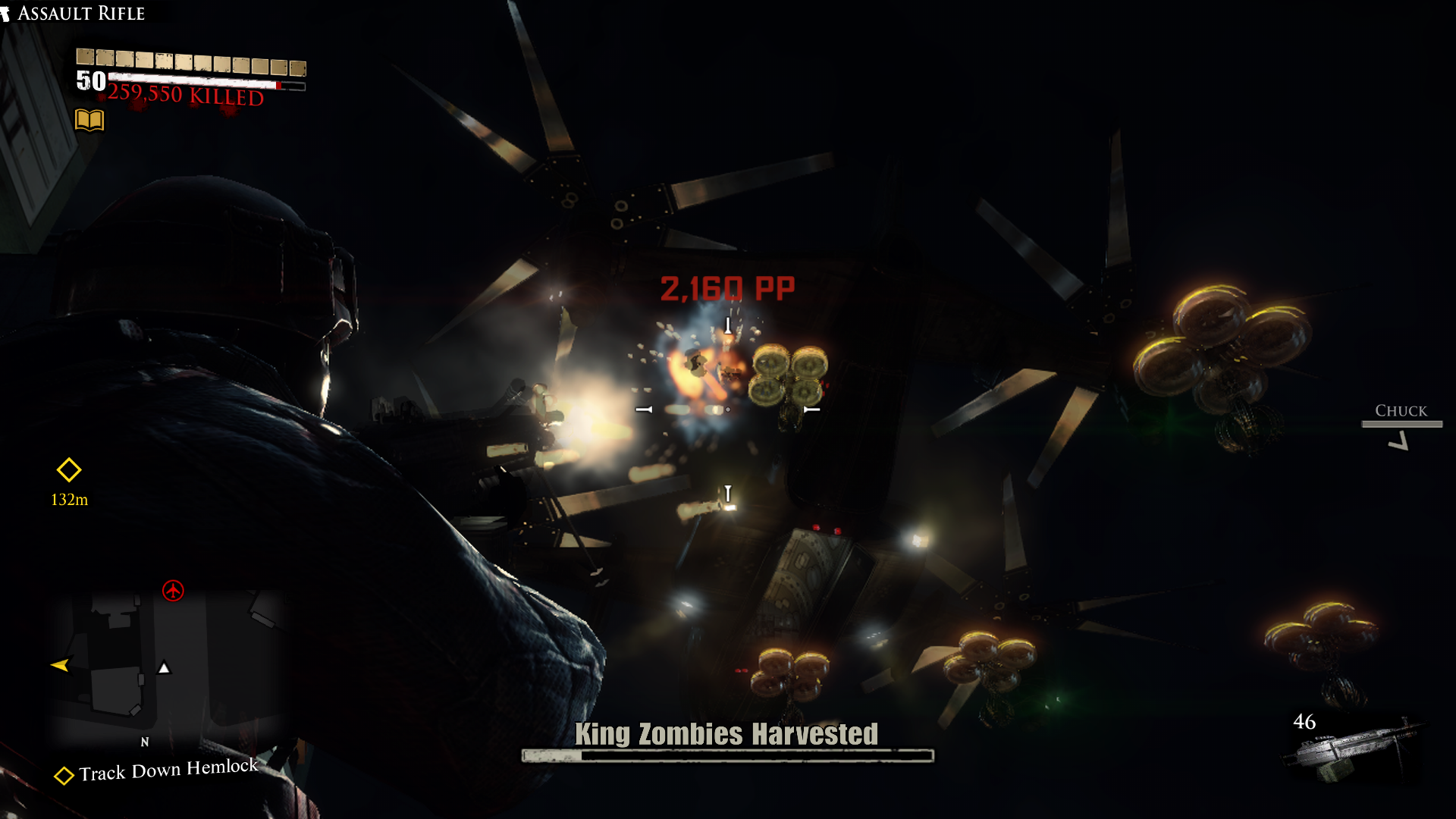 |
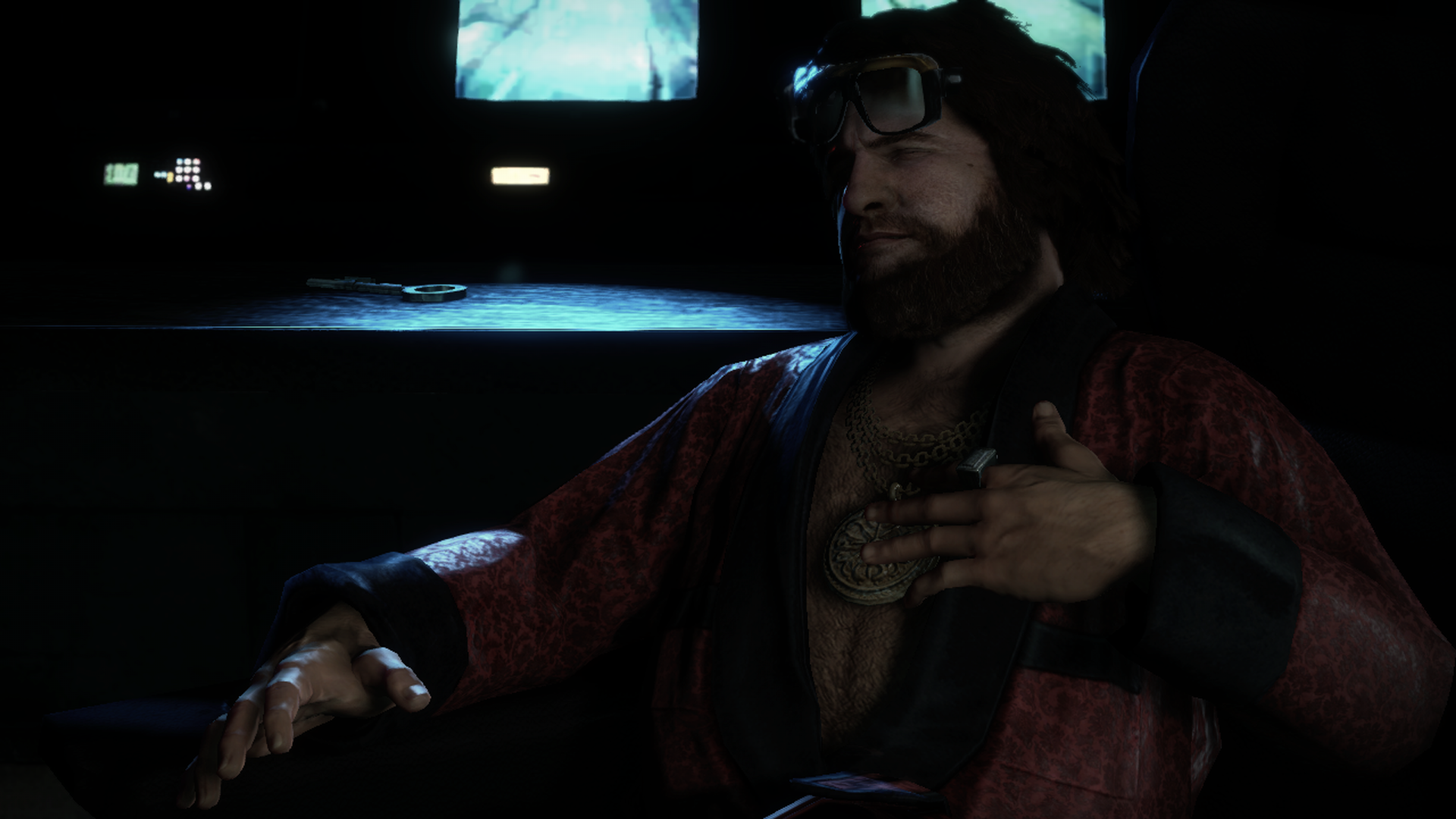 |
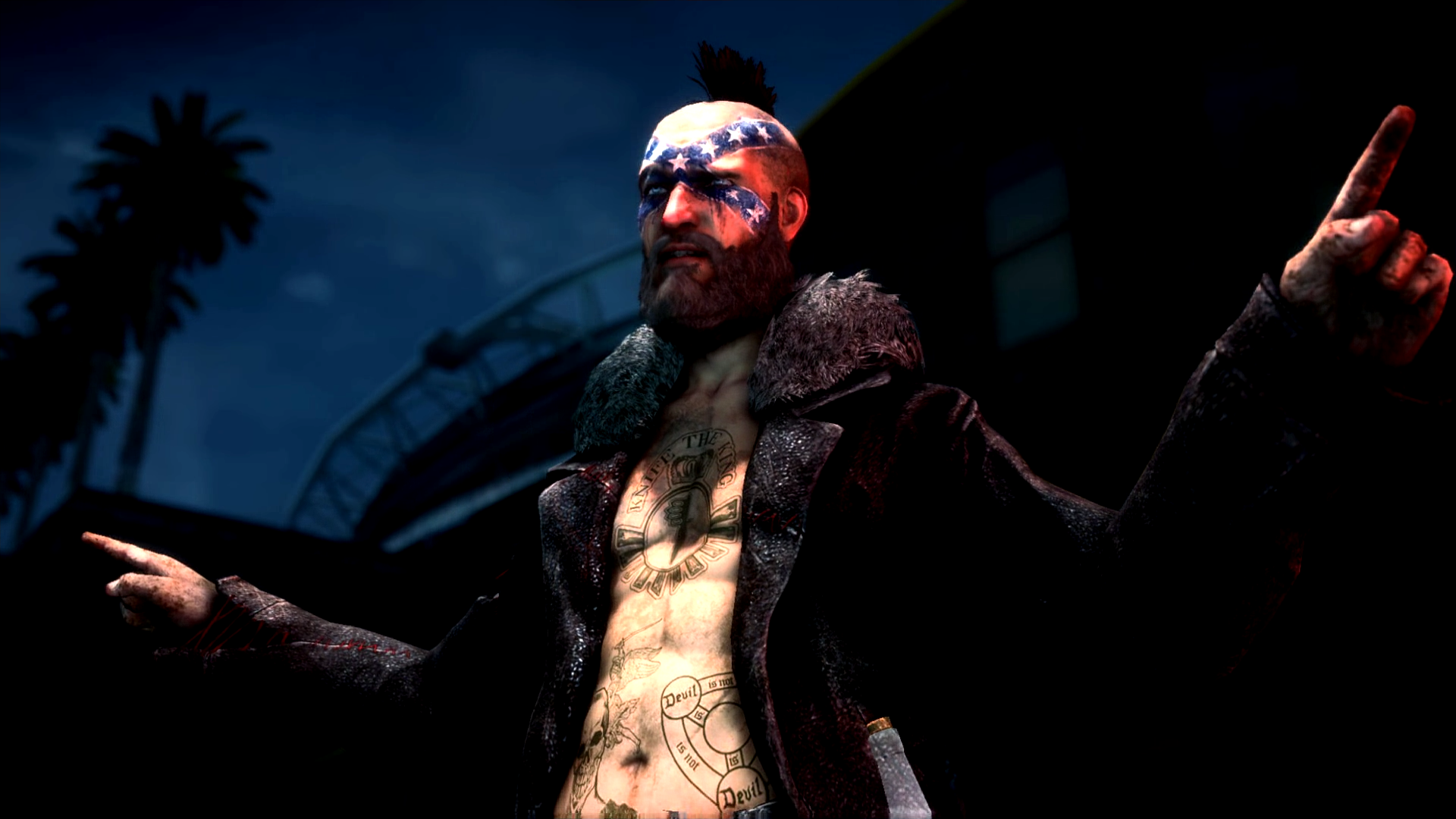 |





